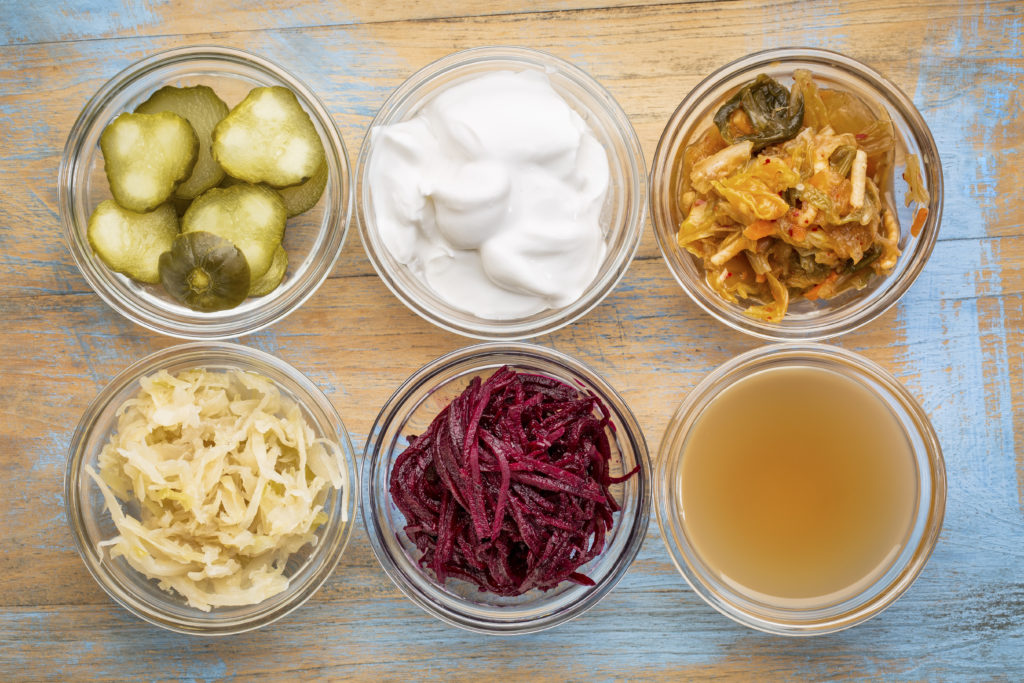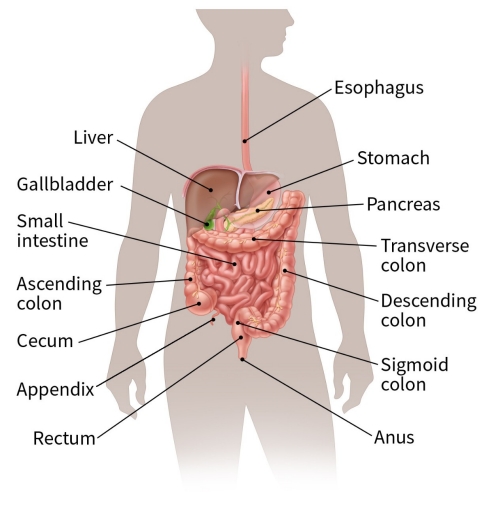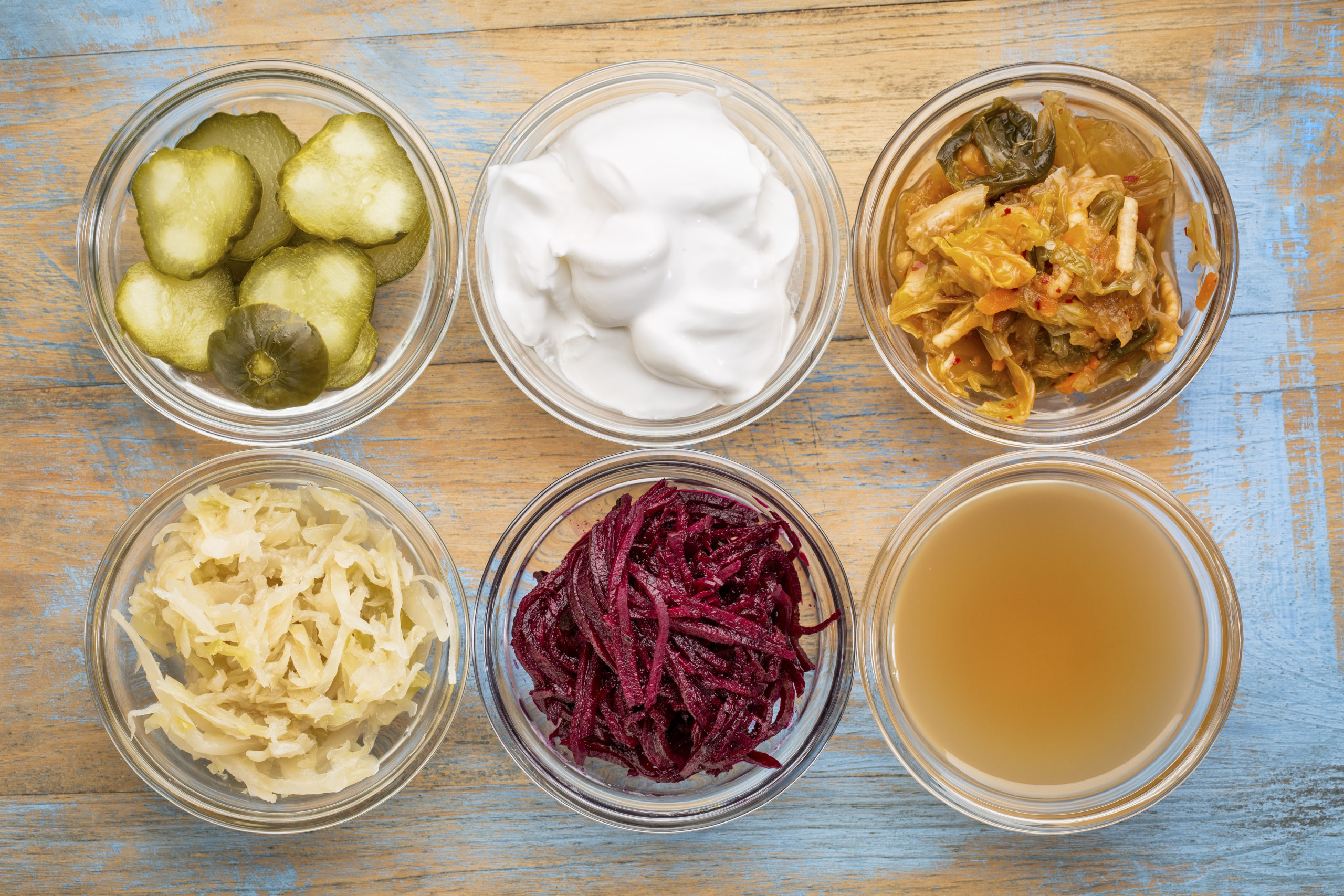
Did you know that Colorectal Cancer is the 3rd most common cancer for both men & women in the United States while being the 3rd most common cancer for men worldwide and the 2nd most common cancer for women worldwide?!
Did you also know that diet & lifestyle factors play a really big role in your risk? That means there is A LOT you can do to both heal & prevent colorectal cancer.
In this article I want to focus on what you have control over. The foods you’re choosing, the lifestyle you’ve adopted, and the targeted strategies you can bring in that can make the biggest difference in both the recovery & prevention of colorectal cancer.
Apparently, where you live, also influences the likelihood of you developing this cancer.
According to statistics from the World Cancer Research Fund if you live in one of these countries you have a much higher risk.
Top 10 Countries With The Highest Incidence of Colorectal Cancer (in 2018):
- Hungary
- South Korea
- Slovakia
- Norway
- Slovenia
- Denmark
- Portugal
- Barbados
- Japan
- Netherlands
A bit further down on the list you’ll find:
Australia #11
New Zealand #14
United Kingdom #24
But remember…just because you’re at an increased risk does NOT mean it has to happen. Let’s dive deeper to understand what this cancer is, all the different ways it can start to grow, and most importantly what you can do to stop this from happening!
What Is Colorectal Cancer
 This is a cancer that starts in either the colon or rectum; both are part of your large intestine. This is why it is sometimes referred to as Bowel Cancer.
This is a cancer that starts in either the colon or rectum; both are part of your large intestine. This is why it is sometimes referred to as Bowel Cancer.
The colon absorbs water & salt from the material that remains after your food has traveled through the small intestine and the essential nutrients have been absorbed.
The rectum stores the waste material that remains after it has passed through the colon. It remains here until it passes through the anus when you have a bowel movement.
Most colorectal cancers start as polyps, or a growth that occurs in the inner lining of the colon or rectum. Not all polyps turn into cancer. And the ones that do usually take many years to develop.
Over time the cancer cells can move from the polyp, into the wall, and eventually into blood vessels or lymph, where it can then travel to other sites. The stage of the cancer depends on how deep it has moved into the wall and if it has spread beyond the wall.
The most common type of colorectal cancer is adenocarcinoma; which makes up more than 90% of all colorectal cancers. This type of cancer starts in the cells that make mucous to lubricate the inside of the colon and rectum.
Thankfully the number of deaths resulting from colorectal cancer has been dropping over the last several decades. This is most likely due to better screening methods, earlier detection, and improved treatment options.
Now more than 1 million survivors of colorectal cancer are currently living in the United States alone.
What Causes Colorectal Cancer To Grow
As I mentioned above, diet & lifestyle play a large role in the development of colorectal cancer.
Diet & Lifestyle
According to the American Institute for Cancer Research there is strong evidence linking the following with increased risk:
- Red meat & processed meat intake
- Smoking
- Higher percentage of body fat
- Alcohol intake >2 drinks per day
And some evidence linking these factors as well:
- Low intake of fruit & vegetables
- Cooking meat at high temperatures
There is also strong evidence linking the following with decreased risk:
- Exercise
- Fiber intake
- Calcium intake
And some evidence linking these factors as well:
- Fish intake
- Vitamin C intake
- Vitamin D levels
Genetics
There is also some genetic risk. People who have a family history of colorectal cancer, polyps, or have an Inherited Cancer Syndrome (like Lynch Syndrome OR Familial Adenomatous Polyposis) are at an increased risk for colorectal cancer.
Root Causes
I also like to consider what underlying causes could be at play. As I have shared in previous posts, I do not believe that cancer is caused by bad luck. Rather, what imbalances have been present (usually for many years) which created an environment where cancer could grow and thrive?
Let’s take a look at some of these potential imbalances when it comes to colorectal cancer.
Impaired Digestion
The health of your microbiome will directly impact the health of your colon. There is actually evidence now that suggests that an imbalance of bacteria in the colon (higher levels of pathogenic bacteria + low levels of bacterial diversity) often accompanies colorectal cancer and can even be used as a screening tool. (1, 2)
And although not traditionally accepted as a cause of colorectal cancer I would argue that years of a sluggish constipated gut creates an environment of inflammation, microbial imbalance, and increased toxic load in the large intestine. Over time this can contribute to an environment which will allow cancer to grow.
Chronic Inflammation
Having a history of Inflammatory Bowel Disease (Ulcerative Colitis or Crohn’s Disease) also increases risk for colorectal cancer. This definitely makes sense when you consider the impact chronic inflammation has on the ability of cancer to grow and reproduce.
High Blood Sugar
Having Type 2 Diabetes and/or chronically elevated blood sugar and insulin levels increase risk for colorectal cancer. Remember, sugar fuels cancer. Insulin also acts as a growth factor for cancer. So the longer you have high amounts of sugar and/or insulin circulating through your body the easier it is for cancer to grow and multiply.
Hormonal Imbalances
Some studies have even suggested that working a night shift can increase risk of colorectal cancer. This is likely due to altered levels of melatonin; which is actually an important hormone when it comes to cancer.
Melatonin is more commonly known for its role in our circadian rhythm and in helping to promote sleep. But it is also an important immune stimulant, anti-inflammatory agent, and “buffer” for inflammatory reactions. It can also act as a tumor suppressor and helps to regulate estrogen.
Toxic Exposures
Exposure to toxins, especially when coupled with sluggish detoxification pathways, can increase risk for ALL cancers. In colorectal cancer, the following exposures have been linked to higher risk:
- Having had radiation therapy for testicular or prostate cancer
- Asbestos
- Plastic & rubber manufacturing
- High level of chlorine exposure
- Leather manufacturing
- Pesticides (especially endosulfan or chlorpyrifos)
- PCBs & Dioxins
You can read more about Toxins & Colorectal Cancer here: (1, 2, 3, 4)
Traditional Treatment Options
Surgery is generally the first line of defense in colorectal cancer and is used to remove pre-cancerous polyps or the tumor if it is localized. Surgery may also be used to remove part of the colon if it has spread into the wall.
Chemotherapy is usually recommended if the cancer has spread beyond the wall, into the lymph or other organs.
Radiation or Proton Therapy may be recommended to accompany either surgery or chemotherapy.
Immunotherapy or Targeted Therapies are also options for higher stage cancers or for recurrence.
The American Cancer Society website is a very useful resource if you’re looking for more detailed information regarding traditional treatment methods.
Integrative Strategies
This is the area of cancer recovery where I get the most excited! Whether you’re choosing traditional treatment or an alternative protocol, bringing in Integrative Strategies can optimize healing, protect your healthy cells, and prevent the cancer from returning.
Looking deeper to identify and remedy root causes will be your best defense against recurrence. As I described above, there could be several possible imbalances at play when it comes to colorectal cancer…inflammation, blood sugar, hormonal, digestive, detoxification, etc.
When I work with cancer clients I like to take it in stages. We always start with diet by taking out the foods that can sabotage recovery while bringing in more of the foods that can stop cancer cells and promote healing.
Then we add the lifestyle factors that will make the biggest impact. And finally work through a healing protocol to address root causes.
For colorectal cancer here is where I would start.
Food
In addition to an overall anti-cancer, anti-inflammatory diet there are certain foods that have been shown to be especially helpful in blocking the growth of colorectal cancer cells. Bringing in more of these foods will definitely help recovery and should be included on a daily basis.
- Cruciferous Veggies
- Garlic
- Berries
- Apples
- Tree Nuts
- Fish & Omega-3 Rich Foods
- Turmeric
- Fermented & Probiotic-Rich Foods
Supplements
As I’ve discussed in previous posts, supplementation is very individual to each person and has a lot to do with the quality of the diet and the cancer treatment plan. For colorectal cancer, I would consider supplementing with the following:
- Probiotics
- Fish Oil
- Vitamin D
- Curcumin
Lifestyle
The 2 most important lifestyle factors when it comes to colorectal cancer are to stop smoking and to add in exercise. 30-60 minutes most days has been shown to change certain hormones and growth factors that can reduce the risk of colon cancer.
Gut Health
The first step in healing root causes would be to focus in on the gut. Taking steps to improve elimination (the quality & frequency of bowel movements), lower inflammation in the gut, and encourage healing of the digestive tract. In addition to identifying and removing any pathogenic overgrowth while supporting greater bacterial diversity in the microbiome.
Recurrence Prevention
It’s important to understand that once you have had cancer you will have an increased risk of that cancer returning. And you may also have an increased risk of getting a second cancer.
Having had Breast, Ovarian, or Uterine Cancer increases your risk for Colorectal Cancer.
While having had Colorectal Cancer increases your risk of getting any of the following cancers down the road:
- Stomach
- Small Intestine
- Anal
- Bile Duct
- Uterine
- Kidney
- Ureter
- Lung
- Vaginal
The increased risk with some of these cancers may be due to shared risk factors, such as diet, obesity, smoking, or lack of physical activity. Genetics may also be a factor. Or the long-term side effects from traditional treatments like chemotherapy or radiation.
The important thing is not to worry about cancer coming back but rather take steps to make sure it doesn’t! Empower yourself to stay in control of your destiny.
Optimize your diet with anti-cancer, anti-inflammatory foods! Include the specific foods & supplements listed above to help prevent a recurrence of colorectal cancer.
Add supportive anti-cancer lifestyle practices like daily movement, stress support, and emotional wellness.
And most importantly, identify your root causes and work through the necessary protocols to heal and re-balance those cancer triggers.
Start With Your Diet!
Probably the easiest and most impactful place to start is with your diet. No matter where you are in your colorectal cancer journey, your diet can help you heal, recover, and prevent recurrence.
It is my passion to help people just like you optimize their cancer recovery with healing, medicinal foods and targeted integrative strategies. While also helping you uncover and address the underlying causes of your cancer so you can take steps to significantly reduce the chance of a recurrence.
If you’re ready to start designing your ideal Cancer Recovery Plan, the first step is to book a FREE Planning Session where we will review your diet, your lifestyle, and your cancer treatment plan and begin to map out your best recovery strategy.
Stop searching for answers on your own and gain the support & guidance of a trusted professional. Click the link to learn more & to book your planning session with me today: “Get One-on-One Help”
